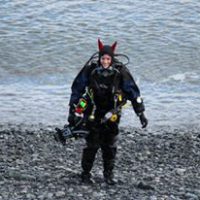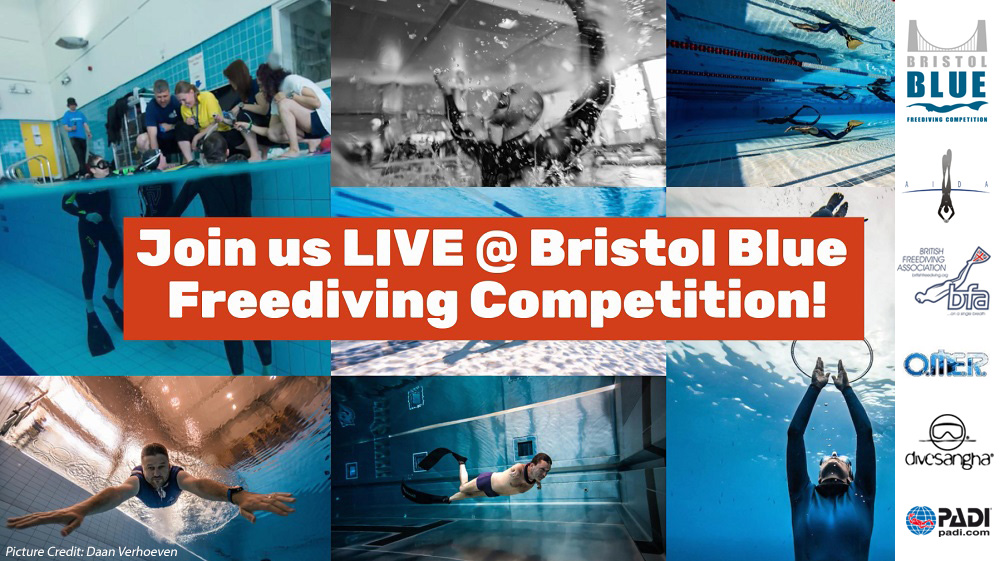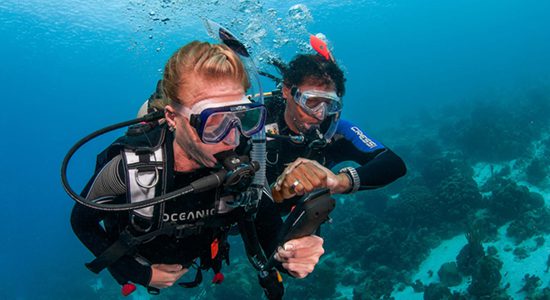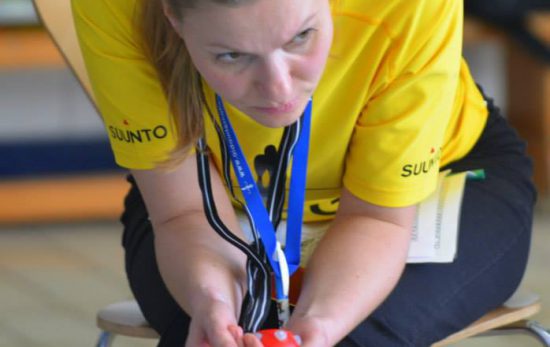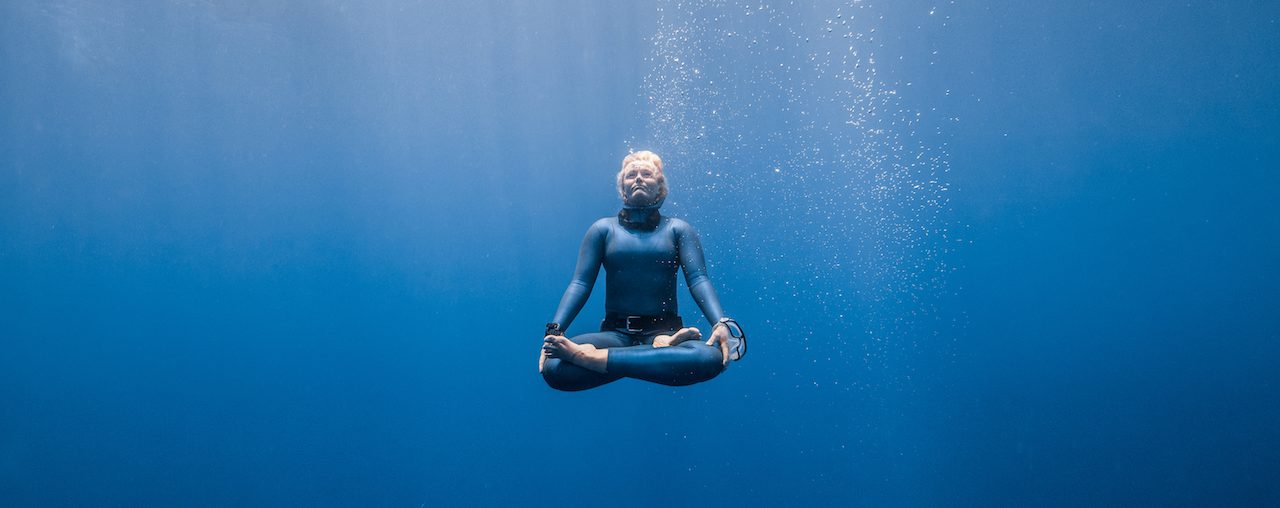
Meet diver, PADI Master Freediver Instructor and part-mermaid Georgina Miller, a six-time national record holder with a personal best of just over 7 minutes in static apnea.
Georgina has been part of Freediving Team GB since 2007, competing at National and International Freediving competitions for both depth and pool. She’s trained all over the world including the deepest blue hole in the world, Dean’s Blue Hole. Georgina’s passion and commitment to training, competing and teaching is apparent to everyone in the freediving community, especially in every course she teaches and every student she inspires.
With her strong background in yoga and swimming, Georgina teaches throughout the year (when not away competing!) at Aquacity Freediving in Cornwall, a school and club founded by herself and Daan Verhoeven. As a very proactive member of the freediving community, Georgina has also been a committee member of the British Freediving Association as Clubs Officer since 2011, helping to further share her love of freediving and to help encourage the safe practice of the sport.
PADI’s Kayleigh Relf caught up with Georgina to find out more about her passion, training, and what it’s really like to be a professional freediver.
What does freediving mean to you?
I love being in the water! Being in the water with mates – even better. Freediving is about enjoying yourself, being conscious, healthy and happy.
Do you also scuba dive?
I learned to scuba dive in 1998 and became a PADI Master Scuba Diver Trainer in 2004. I have had the pleasure of working in some really wonderful places, with wonderful people. Freediving has taken over most of my time though now, so I’m not doing much scuba diving these days.
What got you into freediving?
I have always been interested in being underwater even as a kid. I used to do a lot of snorkelling and see how deep I could get or how long I could stay down for. When I was teaching scuba, I saw a lady freedive down to a deep wreck and wave at us – I thought it was pretty cool and time to go and find out how to do it properly!
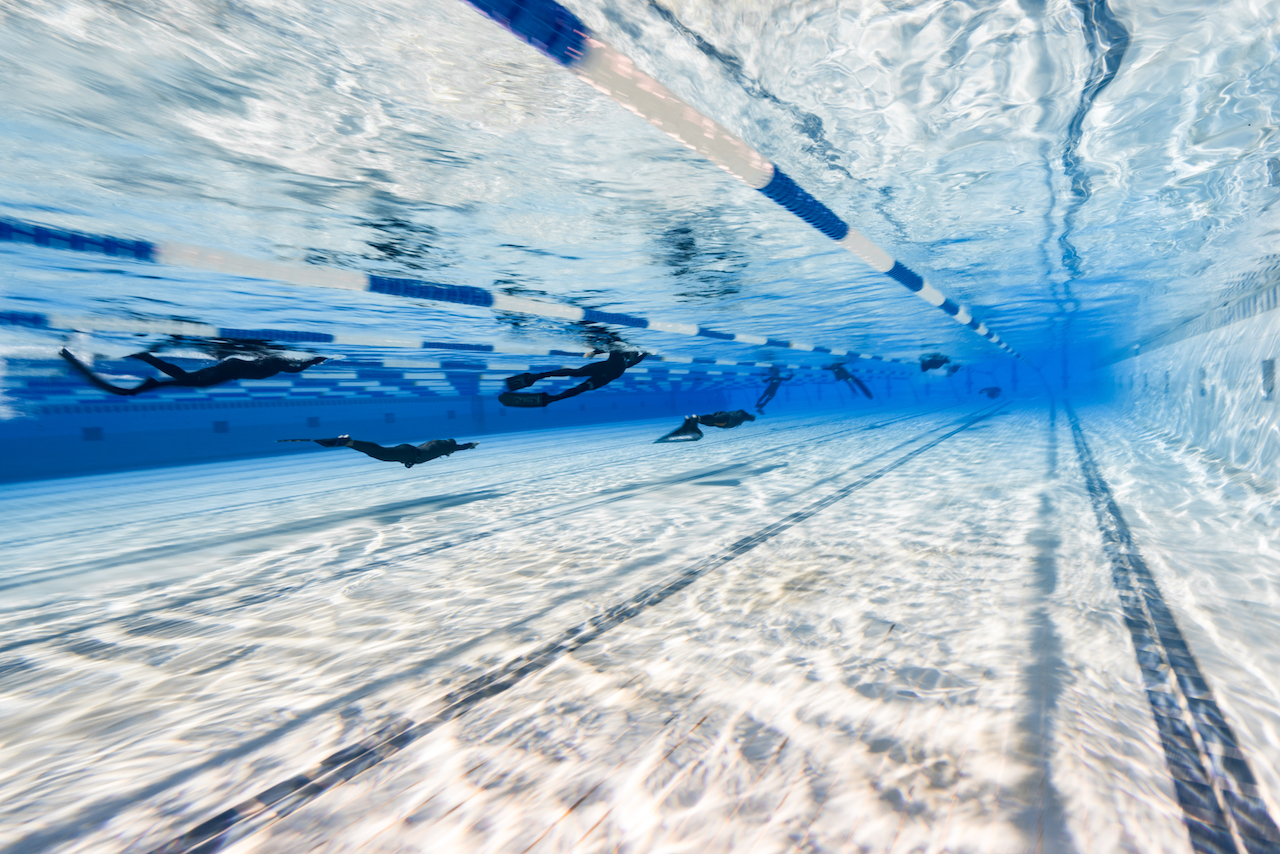
Was freediving something you knew you wanted to develop as a career?
To begin with no, as I wanted to concentrate on competition and personal development. As I became more experienced though, and had a better understanding of what development meant, I realised that sharing these experiences with other people was really central to why I enjoyed it so much. So starting a career in freediving came really naturally. Living in the UK makes teaching freediving fairly seasonal, so we stay busy with media projects, competitions, running the club and developing the school. We are also lucky enough to get the odd piece of work abroad which is really nice during the cold months!
When did you start diving competitively?
I took a freedive course in 2007 and started competitive freediving relatively soon after learning. I started competing really just to learn more and meet people. It is a really personal journey, so I would encourage people just to give it a try. You will only ever really compete against yourself, so it’s good to start early. You don’t need to feel like you have to meet some arbitrary performance requirement in order to compete. I was lucky that a few experienced UK divers really looked after me when I first started and I was really encouraged.
How did it feel when you set your first national record?
National records are a strange one. I have found when I was aiming for them they didn’t work, but when you let go of a target and just do your thing, they happened as a part of training and hard work. So it is a nice feeling and an achievement – but any personal best always is, whether a record or not. I have set six national records in the past, but some of the best and most memorable dives that I have felt most proud of have been for other reasons.
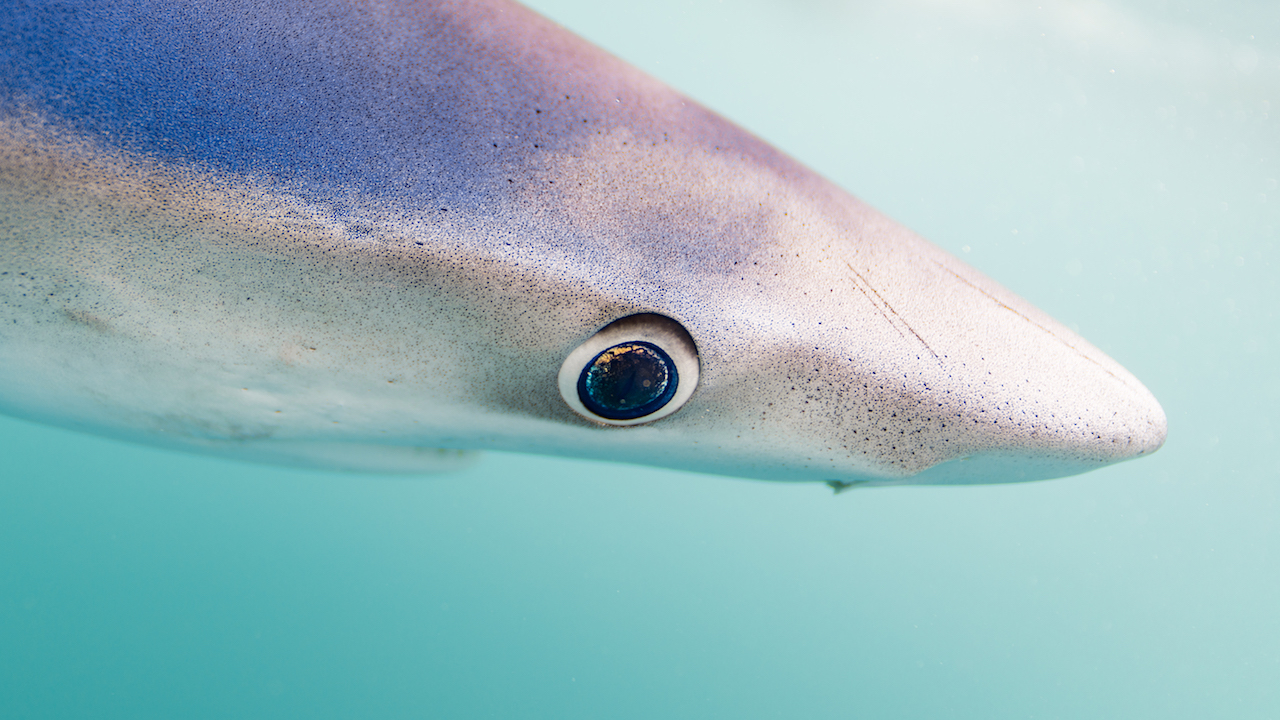
You do a lot of pool disciplines, how do you mix it up? Do you prefer depth or pool training?
I’m lucky to live by the sea, so I think we have an equal mixture of pool and depth training, although we are limited by the weather. They are challenging in different ways. I do prefer being outdoors though – comparing pool training to depth training is like the difference between running on a treadmill in a gym and running around the coast path!
You are training a lot but what motivates you to keep training?
I love the practice and I love the community. I don’t look at it as training, I just like being in the water or around animals and people, so it’s not always about targets. I think being too target orientated can wear you down a bit.
You founded Aquacity Freediving in Cornwall – what courses do you offer, and which areas of freediving do the courses focus on?
We teach from beginner through to master freediver courses, along with specialist workshops in photography, deep equalisation and static apnea. We also do a lot of fun diving, sometimes deeper training and some wildlife interactions. Due to our brilliant location at Porthkerris in Cornwall we have access to a good pool, along with being on a beach that has a marine conservation zone on its doorstep. We are able to give people a varied experience of freediving, we have deep water but also an amazing reef, so we can tailor the courses to different interests. We always try to spend some time diving away from the line exploring the reef and playing in our sessions. You can see a bit more about what we do on our site www.aquacityfreediving.com.
What plans do you have for the future?
Our school is in its second year in Cornwall now, so we are excited to watch it grow. We will be planning lots of exciting cold water adventures so stay tuned! I would also like to carry on competing, travelling and diving in amazing places with amazing people.
If you had to give advice to new freedivers, what would it be?
Always seek instruction, join a club, be sociable and never freedive alone! Enjoy yourselves, freediving is wonderful, whichever aspect of it you are interested in.
The Bristol Blue Freediving Competition took place on Sunday, 27th November in Bristol, UK. Click here to find out more.
